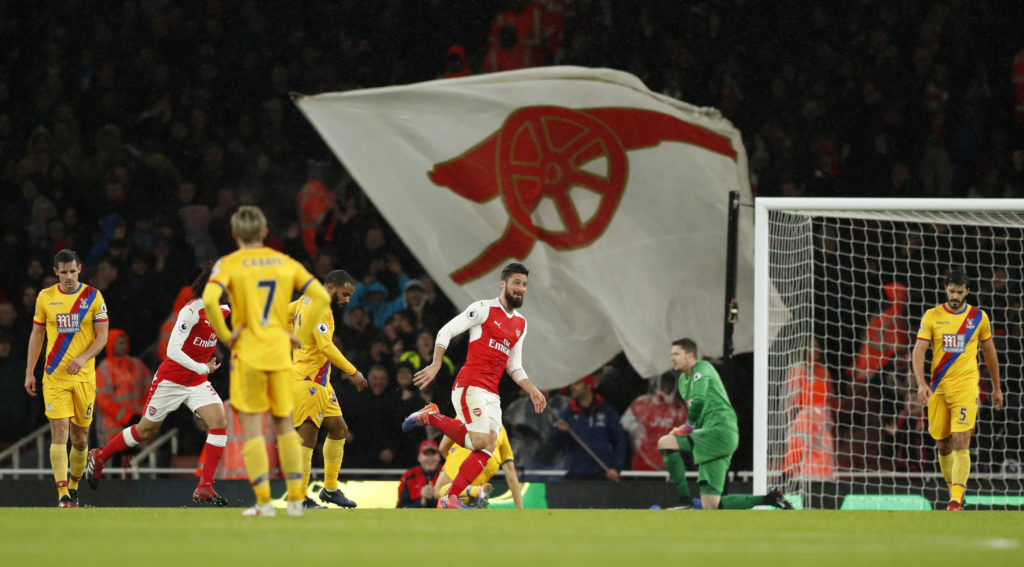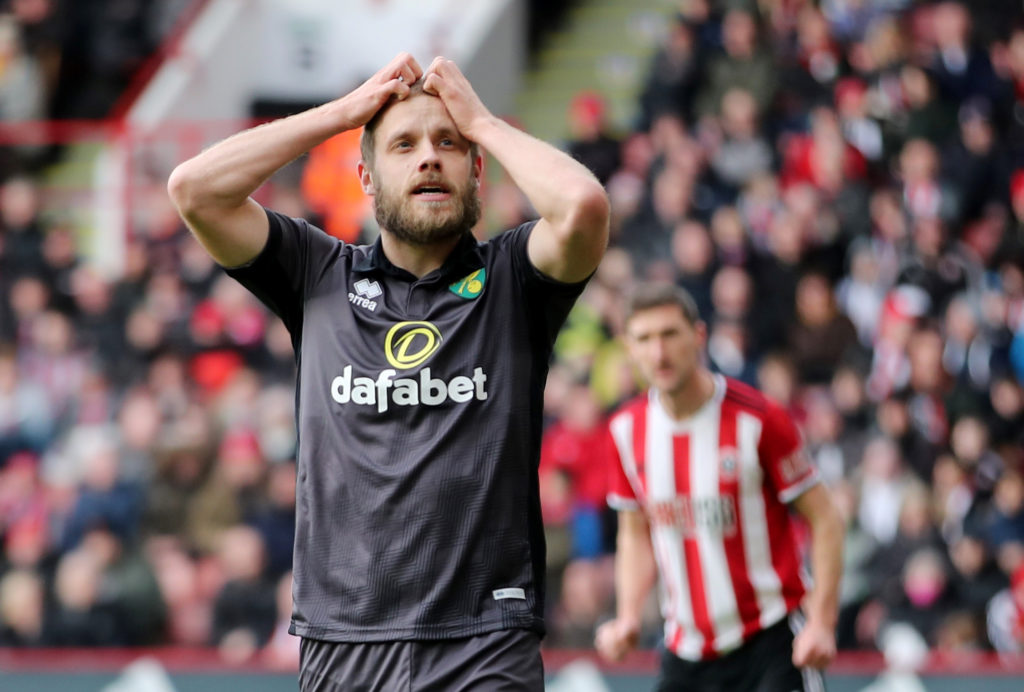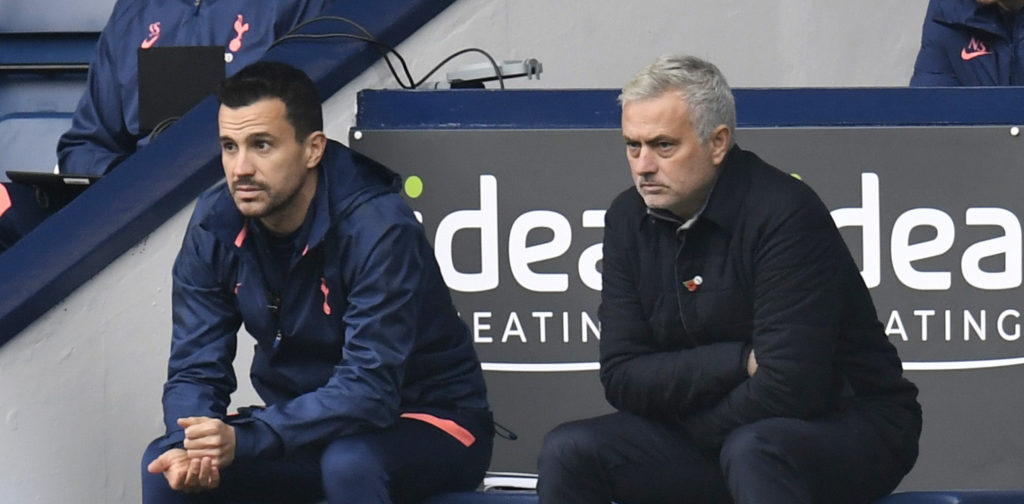Former Fantasy Premier League winner Simon March discusses one of the game’s age-old debates in his latest column…
Within the Fantasy Premier League community, the decisions we make and our reasons for making them represent an endless source of debate.
Yet one inarguable justification does exist, one that simply cannot provoke any other response than immediate, unqualified acceptance, perhaps even with a touch of admiration too. That justification? “I’ve just got a feeling about it.”
That such reasoning is so ubiquitous and so widely accepted does raise a couple of questions. Firstly why, in a game so overflowing with data, are we so ready to follow our feelings when making decisions and, secondly, is deferring to them a good or a bad idea? Addressing these questions will be the focus of this week’s article.
Why We Go With Our Gut

There’s an undeniable romanticism about going with your gut. Perhaps it is the sincerity that comes with making a decision entirely on your own terms, or maybe it’s the brave willingness to trust in forces that are not quite visible to us. Just as Obi-Wan Kenobi’s advice to Luke Skywalker in Star Wars to “Trust your feelings” played a vital role in the latter’s heroic journey, there is nothing more valorous in FPL than to make a choice based entirely on instinct.
However, following a feeling is not necessarily an irrational thing to do. Indeed, there is an evolutionary root to our tendency to do it. We develop these feelings as a shorthand method of processing large amounts of information quickly. In the early days of man, this method was a vital means of quickly identifying survival threats and, as the world became more complex, it also became an important way of making sense of our ever-changing environments.
Gut instinct also has a place in the modern world. It is the reason you hear stories of veteran firefighters saving their teams because they ‘just knew’ that the burning building was about to collapse and everybody needed to get out. You see it constantly on the football field too. Players often, in a split second, make a decision that pundits spend hours, days or sometimes decades trying to explain. Think Pele’s pass for Carlos Alberto’s goal in the 1970 World Cup Final or Olivier Giroud’s Puskas-winning scorpion-kick against Crystal Palace in 2017. These were not consciously-deliberated acts but, rather, they were glorious moments of human instinct incarnate.

Often, in such situations, the individuals in question cannot verbalise how they knew to do what they did, they just did it. Some refer to this as a sixth sense but, in reality, it is likely to be the manifestation of a person receiving enough exposure to certain situational or environmental factors that they no longer had to consciously process the information, their subconscious did it for them.
By this rationale, not only should we be able to trust our feelings when making decisions as Fantasy managers but the quality of those feelings as decision-making tools should increase the more experience we have of playing the game. I’ve no doubt that after a decade or so of playing FPL, I have better instincts than when I first started playing the game, forged, as they have been, in the flames of Shane Duffy Double Gameweek captaincy fails and benched Harry Kane hauls. I’ve seen enough shaky bandwagons in my time to no longer get sucked into them as often as I might have and, equally, there are times where I just know if a player is going to do well or not and I turn out to be right. Am I a better player for all of this experience though? That is definitely debatable.
The Dangers of Following your FPL Feelings

Unfortunately, there are two sides to developing FPL instincts via experience. Just as we learn to avoid certain mistakes, we become prone to making new ones through the same psychological mechanism. Often, our subconscious decisions are driven by whatever we can draw on as our most easily-accessible comparable example. As a result, we put (sometimes too much) faith in a player because we recall them once scoring a hat-trick or because they remind us of another player who did well in similar circumstances. Over time, we build up these reference points against which we make our decisions, many of which will be unreliable. As a result, we sometimes make worse decisions the more experience we get.
For example, an FPL manager who did not experience or benefit from Michu, Swansea’s budget midfield goal-scoring phenomenon who exploded onto the FPL scene in 2012, will probably be less likely to take a chance on a similarly unproven asset than those of us with fond memories of the Michu era. As we’ve seen, particularly this season, trusting unproven assets (at least from the start) is a risky move that probably fails more often than it pays off.

We might also miss opportunities by allowing our decisions to be driven by our most easily-recalled comparisons. For example, after a superb goal-scoring start to this season by Leeds’ Patrick Bamford, many of us would have been drawing mental parallels with Norwich’s Teemu Pukki last season who, like Bamford, also played for a newly-promoted team and also started out banging in the goals like goals were about to be banned, but dropped off considerably after about a dozen matches. Many of us will have avoided Bamford for that exact reason or transferred him out as soon as a similar decline looked like a possibility. Instead, Bamford has continued to score fairly consistently all season so far. Thus, while the comparison to Pukki was easy to make, it was not ultimately an accurate one.

Experience, therefore, is a double-edged sword. It has the potential to allow us to develop the equivalent of an FPL ‘spider-sense’ yet, at the same time, it can cause us to become too rigid, unadaptive and stuck in our ways, perhaps causing us to believe that what we’ve seen is actually all there is to see, or cause us to be too sceptical about the viability of emerging opportunities.
How Can FPL Managers Learn to Trust Their Better Instincts?
So how can FPL managers learn to trust our good instincts and ignore our bad ones? Should we be acting on instinct at all? The key, perhaps, is to recognise what’s going on below the surface and that, just because you have a strong feeling about something, it isn’t necessarily a valid reason to go with it. While instinct and experience can, undeniably, be valuable assets for an FPL manager, these kinds of decision-making mechanisms were, perhaps, not designed to resolve complex decisions of this type, at least not on their own.
In such moments, it is important to question the source of that feeling and how reliable it is as an indicator of what might happen in the future. Instinct may help you see opportunities that other managers don’t, or avoid the traps that others will fall into, but it may also create such traps if followed without sufficient interrogation. This is why it is important to sense-check decisions with some form of objective data or a second-opinion. If you have a feeling about a player, have a look to see if the statistics back it up or how the idea plays with other managers. For all the tools now available to FPL managers to aid in their decision-making, the FPL community is still arguably the most effective resource there is for refining our ideas.

It may also be important to acknowledge also that, while experience can be valuable for an FPL manager, it will likely be less important than adaptability. No two seasons are ever the same and recognising this fact, and recognising it quickly, will often be crucial to success.
What weighting you give to any of the sources of information you draw on will always be up to you, nobody should ever follow a source blindly. But, unless you are some sort of FPL savant, entirely independent or esoteric decision-making will likely end up serving your rivals more often than it serves you. In the arena of going with your gut, this kind of sense-checking process is the high-fibre diet or the probiotic supplement that allows you to trust your gut with greater confidence and to help avoid it doing something bloated, messy and embarrassing.



3 years, 8 months agoAnyone capping Bruno?